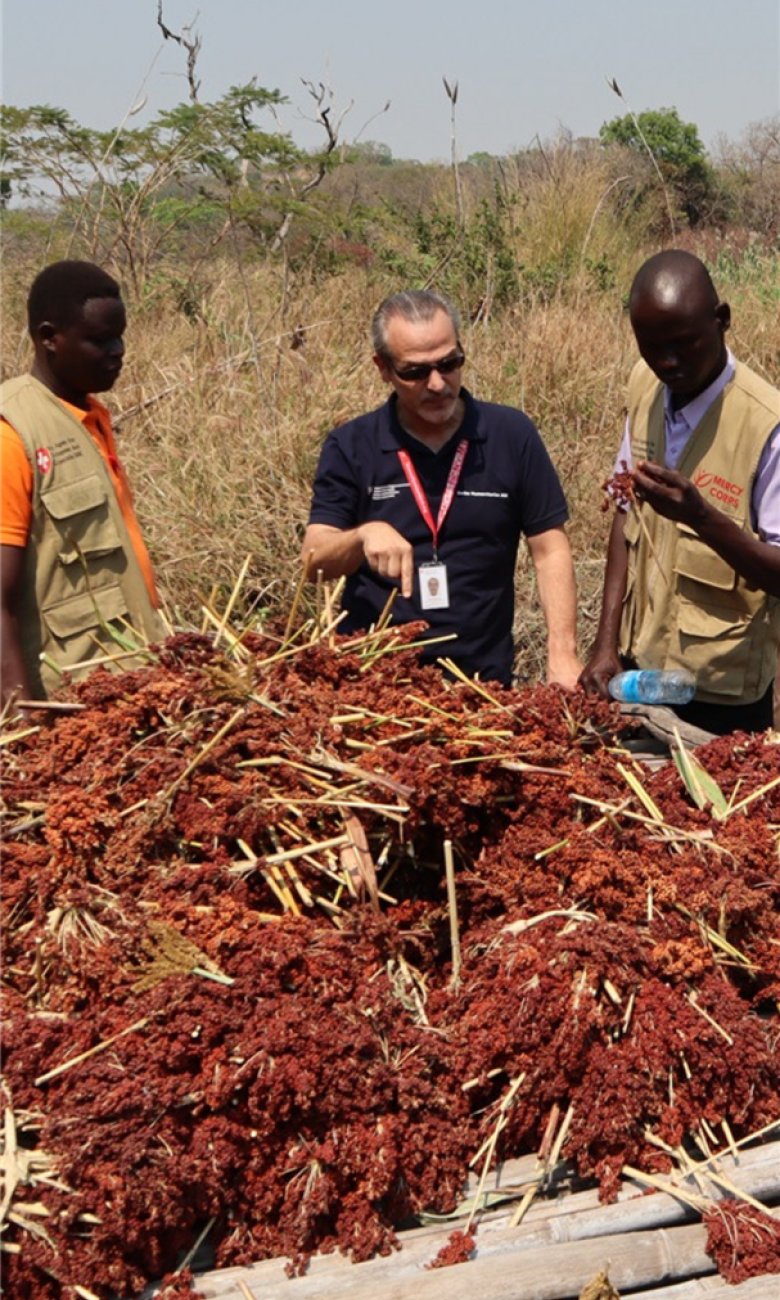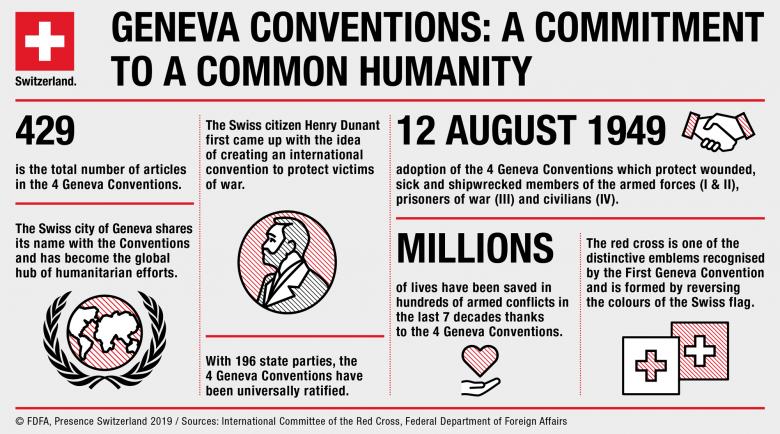The Geneva Conventions: 70 years old and as relevant as ever
Switzerland has long been famous for its chocolate, watches and idyllic landscapes – and also for its humanitarian tradition. A signal example was its key role in the adoption of the Geneva Conventions, which are celebrating their 70th anniversary this year. Since their adoption in 1949, the Conventions have saved countless lives in armed conflicts, but ensuring compliance with them remains a complex and long-term undertaking. Two Swiss Humanitarian Aid specialists share their insights from the field.
The Geneva Conventions are the bedrock of international humanitarian law and apply to armed conflicts. Their main purpose is to protect persons who are not or no longer taking part in hostilities. They also set out minimum obligations that must be met during internal armed conflicts.
All countries have undertaken to comply with the Conventions. This universal commitment to a common humanity is a success story for multilateralism which underscores the vital importance of international law.

Although the Conventions have helped to alleviate the suffering caused by war, international humanitarian law now faces ever-increasing challenges: new weapon technologies, armed conflicts increasingly fought in urban environments, and a growing number of parties involved in hostilities, to name just a few.
In South Sudan, for example, the civilian population is suffering the consequences of a civil war that has pitted the government against a host of armed groups since 2013. South Sudan only gained its independence in 2011 and is now in the throes of a major humanitarian crisis. Over 7 million people – two-thirds of the population of this young state – are in need of water, food and shelter. Violations of international humanitarian law are rife.

According to Eric Marclay, head of the Swiss cooperation office in South Sudan, "a lack of familiarity with international humanitarian law and, in particular, complete impunity for those responsible for violations of the Geneva Conventions are major challenges." Marclay and his team are working day in, day out to ensure compliance with international humanitarian law and the Geneva Conventions. "Our goal is to change people's behaviour and practices over the long term. It's a marathon, not a 100-metre dash," he adds.
According to this former delegate of the International Committee of the Red Cross (ICRC), "Switzerland's credibility on this issue, its responsibility under Article 1 of the Geneva Conventions[1] and its humanitarian tradition are fundamental aspects of the dialogue we are engaged in with our partners. For example, Switzerland has on numerous occasions condemned the repeated and well-documented violations of international humanitarian law against women." Marclay sums up:
We face immense challenges and multiple obstacles, but we cannot compromise on our unconditional commitment to full respect for international humanitarian law.
Ignorance of and non-compliance with the Conventions is by no means a problem that is unique to South Sudan. Martina Durrer, deputy head of the Swiss cooperation office in Bamako, also sees this problem in Mali: "Failure to ensure respect for humanitarian principles and the Geneva Conventions is costing many lives every single week."
Since 2012, northern Mali has been wracked by violence which has progressively spread to the centre of the country. Despite a peace agreement signed in 2015, a number of armed groups, including jihadists, are still fighting for territorial control. Coupled with this are inter-communal conflicts that are exacerbating what is already a very complex situation. The fighting is causing untold suffering and distress to the 7.2 million people caught up in the middle. Durrer notes that
strict compliance with humanitarian principles allows us to carry out our mandate to save lives and alleviate suffering. International humanitarian law provides us with a certain degree of protection to reach people in need.
Regrettably, this did not prevent last June's attacks in the Mopti region of central Mali, which claimed the lives of many civilians.
Facts and figures
4 Geneva Conventions
196 states parties, making the Geneva Conventions the international treaties ratified by the largest number of states.
221 attacks on humanitarian personnel in 2018, including 55 in South Sudan.
70.8 million people worldwide are forcibly displaced, mainly by conflict and persecution.
131.7 million people are in need of humanitarian assistance.

[1] The High Contracting Parties undertake to respect and to ensure respect for the present Convention in all circumstances.




